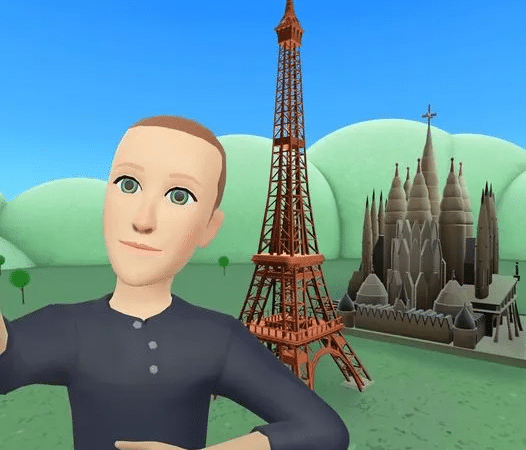Table of Contents
A Walk Down Memory Lane
Meta is commemorating ten years of VR development today, which coincides with the anniversary of their acquisition of VR business Oculus in 2014.

Look at young Zuck, his nose pressed tight in an early Oculus headgear.
Even back then, Zuckerberg had a vision for what VR could become, which has since driven his goal to create the next generation of computing.
And it has resulted in major advancements. Oculus, which is now part of Meta’s Reality Labs VR business, has grown into their Quest VR headsets, which can operate as standalone, untethered VR devices, which was unfathomable in 2014.
Celebrating 10 Years Of Success
The company has also pioneered new types of digital connectivity, including VR spaces, games, smart glasses powered by AI, and its flagship “Horizon” VR social experience.
🎂We’re celebrating 10 years of @RealityLabs 🥳 – what started with a dev kit, a dream and lots of duct tape has evolved into the world’s first mass-market mixed reality headset, smart glasses and more. We can’t wait to see what the future holds.https://t.co/ZxULSKvhYc pic.twitter.com/Hm4BOyqp06
— Meta Newsroom (@MetaNewsroom) April 3, 2024
And while their VR progress hasn’t always been praised as such, especially when Zuck posted this image:

They have accomplished incredible things in the space, even if it is not occurring as quickly as many would like.
But it came at a cost.
Metas Efforts
Overall, the company has invested more than $50 billion on VR development, including $17 billion in 2023 alone.
To put that into perspective, $50 billion is more than the combined GDP of more than half of the world’s countries.
And those investments have not yet paid off. While VR adoption is steadily increasing, they continues to lose money on its massive gamble and will most certainly continue to take a significant financial hit each year as it seeks to increase adoption and make VR engagement a key component.
Apple, for example, recently released its $3,500 Vision Pro VR/AR gear, which the company has lambasted as being prohibitively pricey. However, developing a VR headset will undoubtedly be expensive, and a significant portion of that expense will be passed on to customers. Unless the provider is willing to eat some of the cost in order to increase usage and take-up.
The Future Of Meta?
That appears to be the direction Meta is taking, since the business plans to unveil its own powerful AR glasses later this year. According to Meta, the device is now too pricey for public release, but it is likely that Meta will seek to get it into people’s hands in order to develop toward its larger Metaverse vision.
This could need taking another short-term loss for a longer-term benefit.
It’s a dangerous plan, but the logic is sound, and it stands to reason that we’ll all be using VR and AR as the technology that enables them advances. That does appear to be the future, even if we can’t see it yet.
And, while Meta’s VR losses are significant and will continue to make headlines, customer habits indicate that this is the next stage, possibly within the next decade.
Meta has always maintained that the metaverse is a long-term goal, and that the great majority of people will not be able to experience it for several years.
But in five years, things will be much clearer, and in ten years, perhaps we’ll be hailing Zuck for his foresight and wisdom.
Or we’ll read a million think pieces on how he lost hundreds of billions of dollars on a project that never materialized.
Stay updated on all of the latest news by subscribing to the ITP Live newsletter below and by clicking the push notifications.




